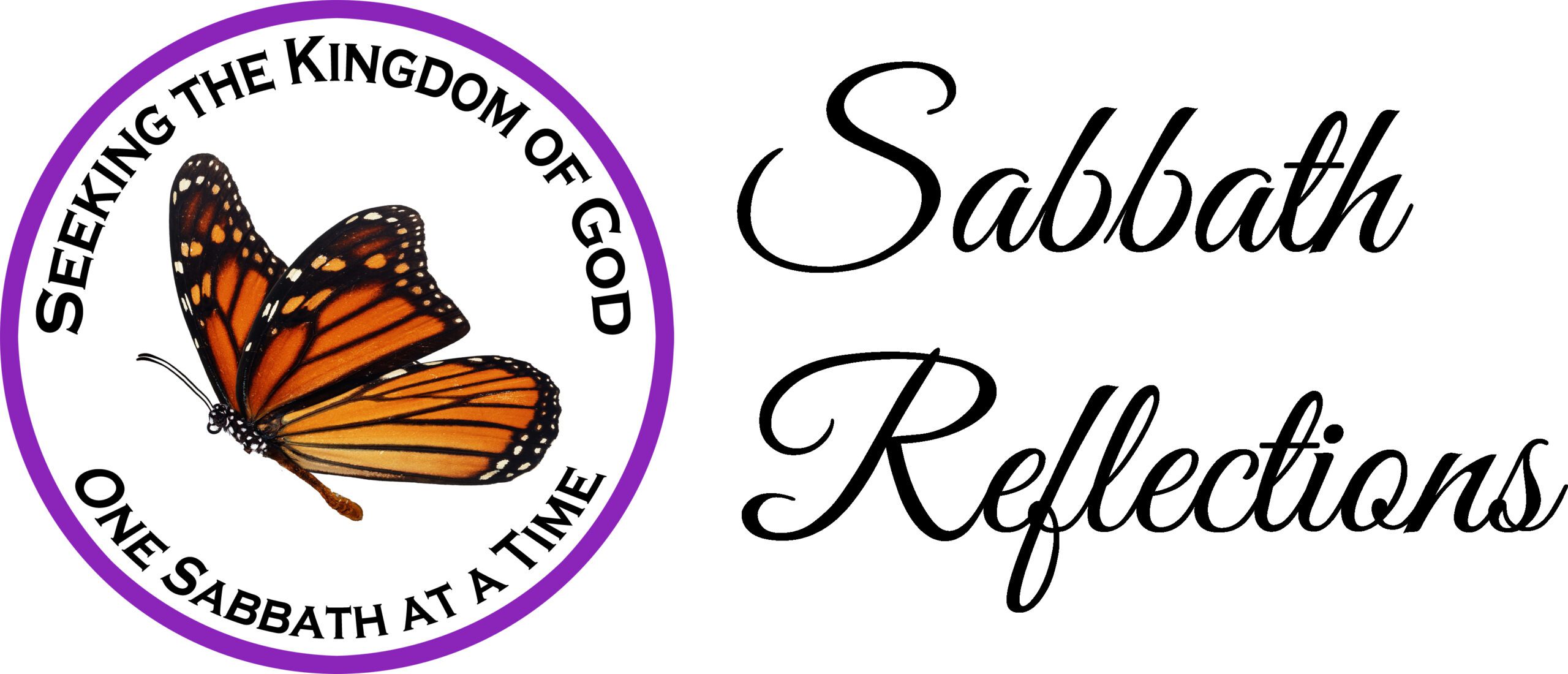SABBATH THOUGHT 2022-02-05—CUTOFF
May God bless you on His Sabbath day!
Recently, I talked with someone who was concerned with what the Bible had to say about being “cut off” from God. It takes a very converted mind to recognize that God means everything He says—both the good things as well as the admonitions against disobedience. An unconverted mind will either ignore God’s warnings or simply assume they do not apply to themselves. Realizing that God is absolutely serious about obeying Him is not only an indication of the Holy Spirit working in us, it is a result of sincerely loving God and wanting to please Him.
The Hebrew word for cut off is karath and it has two seemingly contradictory meanings. The first is as part of establishing a covenant. Such a covenant is based upon a maledictory oath of the parties to the covenant. One example is the covenant between God and Abram. Genesis chapter 15 describes cutting the sacrificial animals into two pieces and laid out with a path between the halves. God then passed between the pieces and consumed them with fire (they were a burnt offering). The maledictory oath stipulates that either party, in this case it was Abram or God, had to die if one of them failed to fulfill the covenant between them. So, the word is used when making or “cutting” a covenant. Karath also refers to the covenant between God and the Israelites in the wilderness (Exo. 34:10; Deu. 4:23; 5:2-3, et al).
The other meaning for karath is to destroy or consume. Although similar to a covenant where the animals were consumed, it also means complete destruction of someone or something. God warned that He will cut off, or destroy, anyone who eats the peace offering while unclean (Lev. 7:20-21), eats the fat of a sacrificial animal (Lev. 7:25), drinks the blood of an animal (Lev 7:27; 17:13-14), commits sexual perversions (Lev. 18), commits child sacrifice (Lev. 20:3-5), engages spiritual mediums (necromancers or conjurers) (Lev. 20:6), offering deformed animal sacrifices (Lev 22:24), etc. When God said that He would destroy the existing inhabitants of the promised land when the Israelites entered into it, the word He used was karath; that is, they would be “cut off.” Basically, karath is one of the strongest words God uses when He warns against committing certain acts of disobedience.
When it comes to God’s holydays, He is just as serious about some very specific violations. For example, we are to put leaven out of our houses during the days of Unleavened Bread. While God does not say He will cut off someone who fails to eliminate the leaven from their house, notice the warning against deliberately eating leaven:
EXODUS 12:15-20 You shall eat unleavened bread seven days; even the first day you shall have put away leaven out of your houses; for whoever eats leavened bread from the first day until the seventh day, that soul shall be cut off from Israel. 16 And in the first day there shall be a holy convocation, and in the seventh day there shall be a holy convocation for you. No manner of work shall be done in them, except that which every man must eat, that only may be done by you. 17 And you shall keep the Feast of Unleavened Bread, for in this very same day I have brought your armies out of the land of Egypt. Therefore you shall keep this day in your generations as a law forever. 18 In the first month, on the fourteenth day of the month at sunset, you shall eat unleavened bread, until the twenty-first day of the month at sunset. 19 Seven days there shall be no leaven found in your houses, for whoever eats that which is leavened, even that soul shall be cut off from the congregation of Israel, whether he be a stranger, or born in the land. 20 You shall eat nothing leavened. In all your dwelling places you shall eat unleavened bread.’ “
Over the years, many have accidentally or inadvertently eating something that was leavened during these days. When that happens, are we immediately cut off from God? No, because Jesus Christ’s blood is there to cover our sins. More importantly, it was not intentional. In these verses, God threatens to cut off those who deliberately eat leavening. Think about it. In the days of the ancient Israelites, they were in the wilderness. There were no office buildings in which they worked where someone would bring in bagels or doughnuts to share and a believer would have a memory lapse and eat one. For the ancient Israelites to eat something leavened, they would have to consciously keep some leavening and then purposely bake bread with it. For them, they could not accidentally eat leavening. Therefore, God’s warning was severe and had grave consequences.
Another holyday with a similar warning is Atonement. On that day, anyone who refuses to fast (abstain from eating and drinking), is cut off:
LEVITICUS 23:28-29 And you shall do no work in that same day, for it is the Day of Atonement, in order to make an atonement for you before the LORD your God, 29 For whoever is not afflicted [fasting] in that same day, he shall be cut off from among his people.
Fasting is not something that easily slips our minds. The same was especially true for the ancient Israelites. Being in the wilderness, they did not have the influence of the pagans around them. Moreover, to cook something meant building a fire that would be easily noticed by the rest of the Israelites. Eating on Atonement would have been immediately observed, so failing to fast could only be intentional.
God also gives the same serious warning of being cut off for anyone who works on the Sabbath:
EXODUS 31:14 You shall keep the Sabbath therefore, for it is holy to you. Everyone that defiles it shall surely be put to death, for whoever does any work on it, that soul shall be cut off from among his people.
Working on the Sabbath is something that has been the subject of many questions. What is work? Generally, it is any servile work (that of a servant) or labor for wages. While it is specific to the weekly Sabbath here, it is applicable to all of God’s holydays because we are commanded to refrain from work on each one of the high days, generally noted as holy convocations. But what about activities that fall outside of “servile work” or “labor for wages?” There are endless discussions about what constitutes “work” and what is not. How can we decide? Many try to make a list of rules for Sabbath-keeping. Rather than rules, there are two questions that we can ask to decide whether something is a violation of the Sabbath:
1) Does it interfere with our spiritual connection to God and with His children?
2) Does it have a significant impact our time with God and His children?
Obviously, shopping for food, filling up the car with gasoline, taking out the trash, being in a noisy environment or one with raucous music, taking phone calls from work, etc., are all unnecessary distractions that should be avoided on the Sabbath. While there are situations that everyone must deal with on the Sabbath, God judges us based upon the “thoughts and intents” of our hearts (Heb. 4:12). Sabbath‑keeping should be a time we desire to spend with God and His children. Anything that seriously disrupts that is probably not something we should be doing.
There is one other serious warning God makes that we need to heed and it is specific to the Passover. The Passover is not a holyday for the reason that God makes something holy. He alone establishes the Sabbaths and holydays as holy. We keep them holy by how we observe them. Since God (the Logos) died on Passover, it is not a holyday due to the absence of Jesus Christ at His death. However, this warning reflects just how important it is to keep Passover:
NUMBERS 9:13 But the man that is clean, and is not in a journey, and holds back from keeping the Passover, even the same soul shall be cut off from among his people. Because he did not bring the offering of the LORD at its appointed time, that man shall bear his sin.
Without Passover—without the sacrifice of Jesus Christ—none of the holydays or weekly Sabbaths matter. We are all dead in our sins. So, someone who is spiritually clean (baptized, in our case) and is not on a journey is cut off if they refuse to observe the Passover. In fact, Passover is so important to God, who gave His very own Son to be sacrificed and die, that there is another time it can be observed if someone is unable to keep it on the evening of the 14 day of Nissan (Abib):
NUMBERS 9:10-12 “Speak to the children of Israel, saying, ‘If any man of you or of your generations shall be unclean because of a dead body, or in a journey afar off, he shall still keep the Passover to the LORD. 11 They shall keep it the fourteenth day of the second month between the two evenings, eating it with unleavened bread and bitter herbs. 12 They shall leave none of it until the morning, nor break any bone of it. According to all the ordinances of the Passover they shall keep it.
In all that God requires of us, there are a few sins against Him that come with a warning of being cut off from Him. The most important, and applicable to us, are eating leaven during the Days of Unleavened Bread, refusing to fast on Atonement, working on the Sabbath, and observing the Passover. These all reflect a rebellious attitude toward God. Except for the Passover, the others are generally simple enough for us to remember and keep. If we fall short on occasion, we have the blood of Jesus Christ to cover it.
When it comes to Passover, however, remembering and partaking of the symbols of the body and blood of Jesus Christ are part of our covenant with God. At our baptism, we karath—or “cut a covenant”—with God to obey Him in return for our sins being forgiven so that we might be receive eternal life. Failing to observe the Passover breaks that covenant and results in our being karath—or “cut off”—from God.
Even though the Passover is not a holyday, it is a most desirable observance for us. We should value it and look forward to it more than any of the holydays. For us, it is the means to eternal life in God the Father’s kingdom through the sacrifice of our Lord, God, and Savior, Jesus Christ. Prepare now for it. Enter into it with a humble and contrite heart knowing that our lives belong to God whose mercy has covered our sins with the blood of that Passover sacrifice.
May God’s grace and peace be upon you!
Steven Greene
https://sabbathreflections.org


